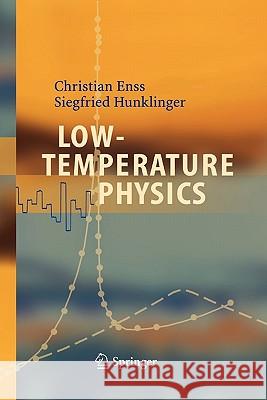Low-Temperature Physics » książka
Low-Temperature Physics
ISBN-13: 9783642062162 / Angielski / Miękka / 2010 / 573 str.
Science is often a journey to the limits of the feasible and ascertainable. In low-temperature physics this journey strives towards absolute zero. When Louis Cailletet on December 2nd, 1877, realized a major step in terms of the production of low temperatures, namely the ?rst liquefaction of oxygen, he could hardly imagine the wealth of exciting physical phenomena that would bediscoveredinthis?eld. Despitetheanticipation fromeverydayexperience, which generally equates cold with discomfort and sti?ening, condensed m- ter at low temperatures reveals a wide array of fascinating properties. As the mostprominentexamplesletusmentionsuper?uidityandsuperconductivity, whose attraction is undiminished since their discovery. With every step - wards lower temperatures numerous new insights have resulted, which make the traditional subject of low-temperature physics an attractive and modern research topic. The present book is based on material from lectures that both authors have given several times at the universities of Heidelberg, Bayreuth and Konstanz. It is focused on the discussion of physical phenomena that become most apparent at low temperatures. The book is mainly aimed at students, and provides a compact and comprehensible introduction to various topics of low-temperature physics. Selection and emphasis of the material is subj- tive and certainly re?ects our personal preferences. However, we have tried to give room for as wide a spectrum of topics as possible. The contents are organized in three parts, entitled quantum ?uids, solids at low temperatures and principles of refrigeration and thermometry.











